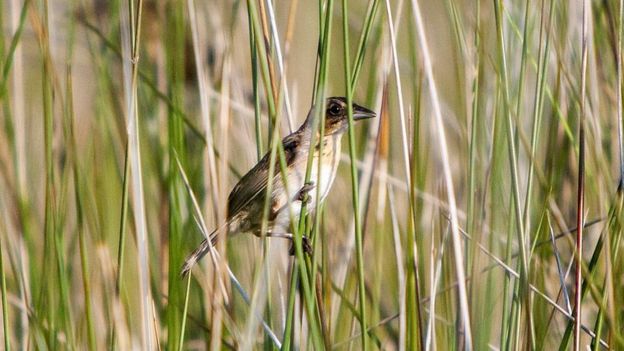Researchers in Louisiana have discovered traces of oil from the Deepwater Horizon spill in the feathers of birds eaten by land animals.
A team examined the feathers and digestive tract contents of seaside sparrows – measuring signature carbon from spilled oil.
They say it “is the first demonstration that oil from the spill made it into the” food chain of land animals, according to BBC.
The study focused on seaside sparrows and the soil sediments of the Louisiana marshes.
Researchers analysed contaminated sediments to identify a chemical “fingerprint” from Deepwater Horizon.
They then examined feather and digestive tract contents of 10 of the birds, to work out how much oil had been incorporated into the sparrows’ biological tissue.
The 2010 Deepwater Horizon (DWH) oil spill released an estimated 700,000 cubic metres (154 million gallons) of oil into the northern Gulf of Mexico.
Prof Andrea Bonisoli Alquati, who led the research at Louisiana State University, said: “These results are consistent with the incorporation of Deepwater Horizon oil into the tissues of the exposed birds.”
Prof Richard Shore, from the UK Centre for Ecology and Hydrology, said the findings were interesting, but he added: “Sparrows feed on marine and terrestrial invertebrates, [so exposure could have been] through the marine food chain.
“It is perhaps not so surprising,” he told BBC News. “But it is interesting there may have been exposure in this species.”
Prof Bonisoli Alquati told BBC News that the work showed that “oil doesn’t stay where it’s spilled – there’s potential for it to move into other ecosystems.
“So I think future risk assessments [for deep-sea oil extraction] should include those land-based ecosystems, as well as marine.
“Many animals live at the blurred boundary between the two.”
H.Z

